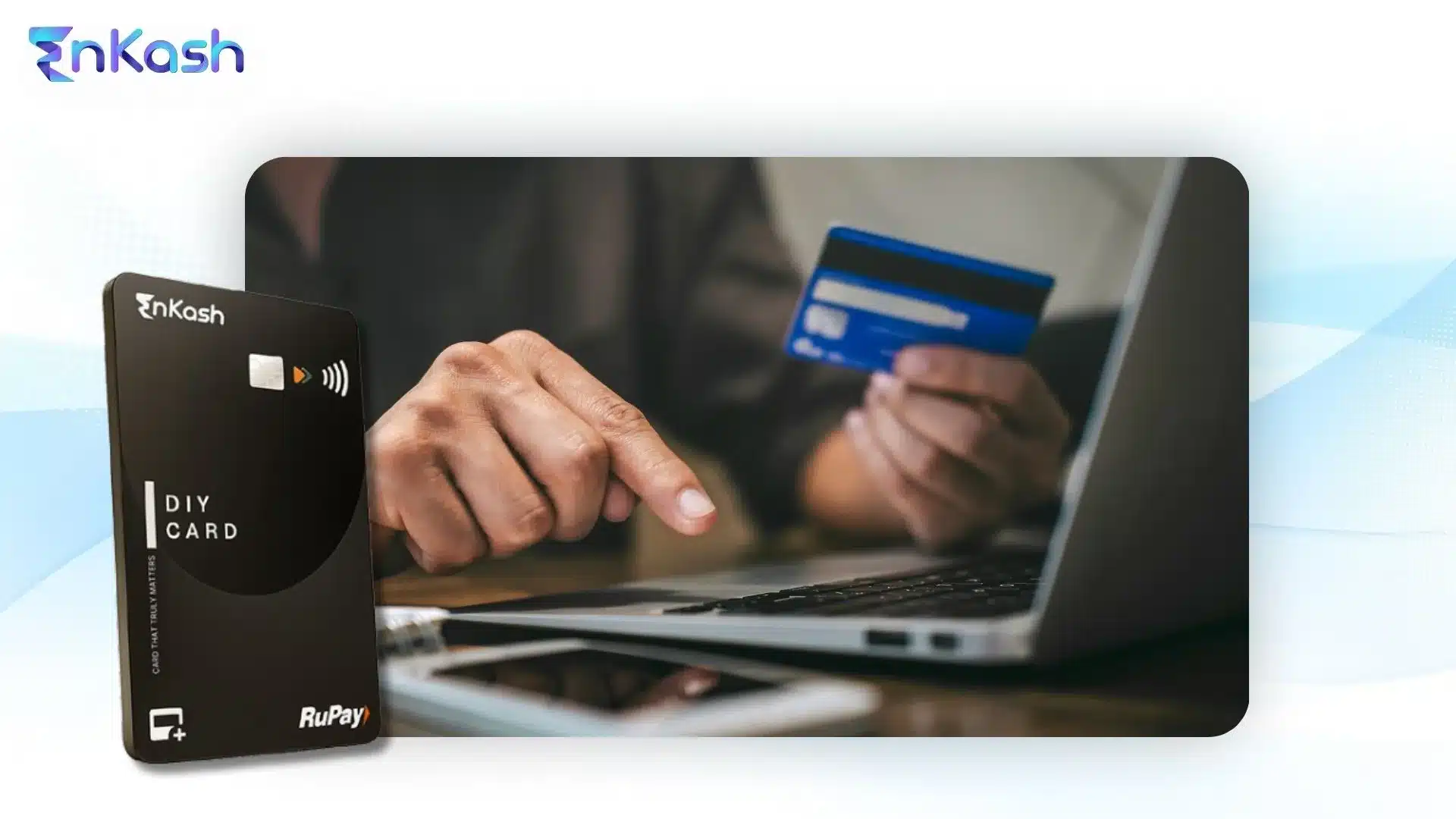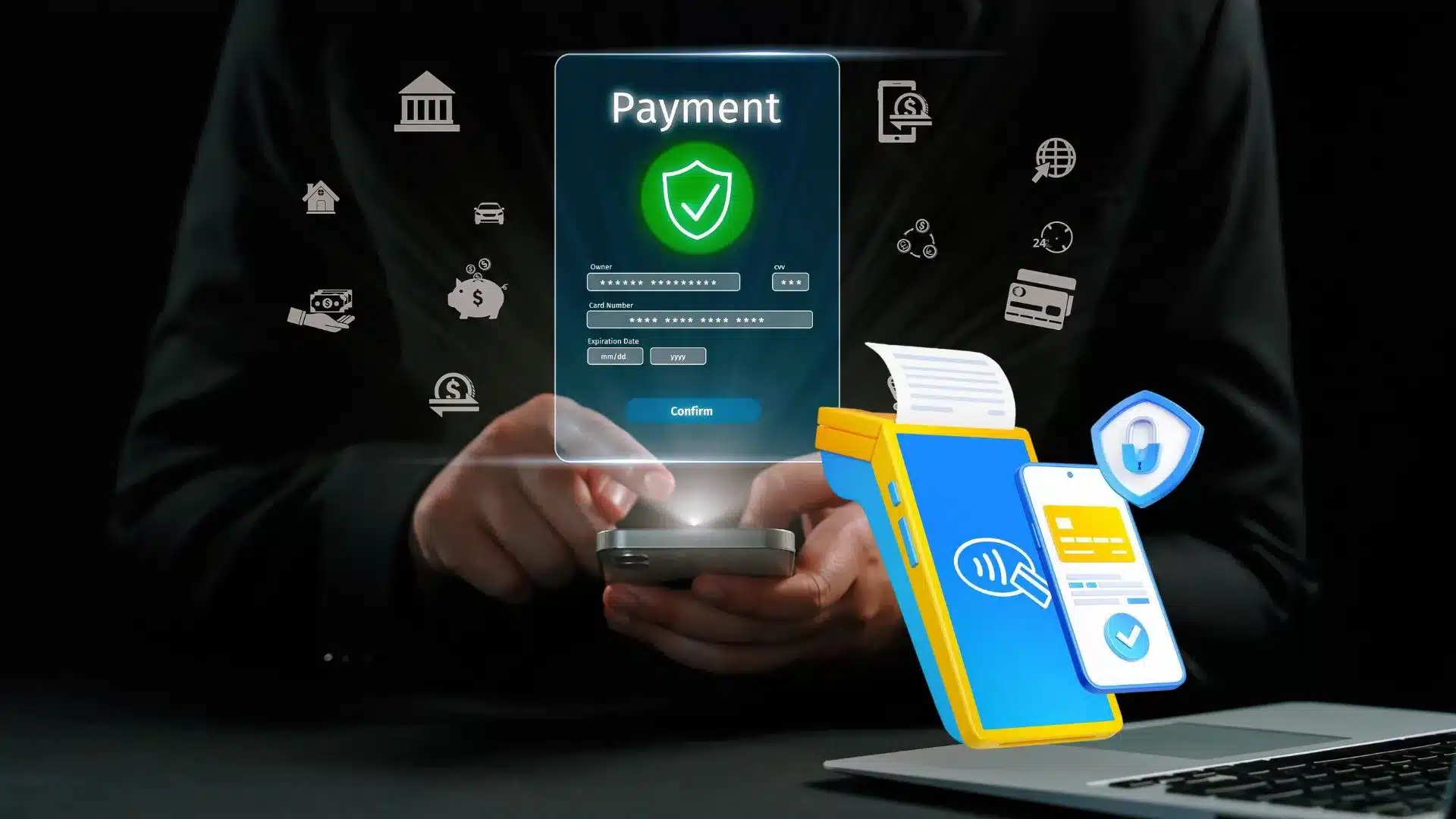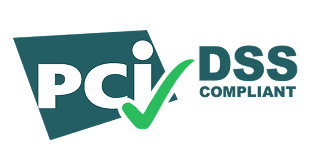Why Businesses Need Corporate DIY Prepaid Cards
Managing money in a company has never been simple. Traditional ways of handling expenses, like reimbursements or petty cash, often lead to delays, confusion, and mistakes. Businesses today need smarter tools that bring control and clarity. This is where DIY Prepaid cards play an important role. They allow organizations to set clear limits, track every transaction, and give teams the power to handle expenses without risk of overspending.
A Corporate DIY Card is different from a regular credit or debit card. It is loaded in advance with a fixed amount, so the spending always stays under control. Since the money is prepaid, there is no chance of building debt or dealing with unexpected interest charges. It also improves planning, as each card is linked to a specific purpose—such as a department, project, or vendor.
The real strength of these solutions lies in the DIY card module. This module is a digital platform that allows finance teams to create, manage, and monitor cards directly. Instead of going through banks for every request, a company can instantly issue cards, set budgets, and decide where those cards can be used. This flexibility saves time and reduces paperwork. It also ensures that every rupee is tracked from the moment it is spent.
What is a DIY Card Module?
The DIY card module is a system that gives full control to a business over how prepaid cards are used. A manager can set spending caps, restrict categories, or allow cards to be used only with approved vendors. This level of customization makes it far more effective than traditional cards.
What is EnKash DIY Card Module?
Among the well-known providers, EnKash has built the EnKash DIY Card module. It is designed to simplify corporate payments by giving businesses the ability to create cards instantly, define budgets, and track expenses in real time. For companies that want transparency and control, this module provides a ready solution.
In short, DIY Prepaid cards for business are reshaping how organizations think about expenses. They bring discipline, save time, and give finance teams better tools to manage every rupee with confidence.
Problems with Traditional Corporate Expense Management
Managing expenses through traditional methods creates several hurdles for businesses. These challenges affect both employees and finance teams, leading to delays, errors, and stress. Understanding these problems makes it clear why DIY Prepaid cards have become a smarter alternative.
Key Problems Businesses Face:
- Manual reimbursements take time
Employees first pay from their own pockets and then wait for approvals. This slows down work and creates frustration. - Petty cash is hard to monitor
Cash transactions leave little trace. Without proper tracking, it becomes easy for mistakes or misuse to occur. - Limited control on corporate cards
When employees use standard credit or debit cards, there are fewer restrictions. Spending can cross limits, and misuse becomes harder to prevent. - Lack of real-time visibility
Finance teams often discover the spending only after the bills arrive. By then, it is too late to correct or stop unwanted expenses. - Vendor payments get delayed
Paying vendors through bank transfers or checks can take several days. This affects relationships and may even impact ongoing work. - Audits are stressful
When payments are scattered across cash, checks, and reimbursements, audits become lengthy and difficult. - Policy compliance is weak
Without clear controls, employees may pay for things outside company rules. Detecting these violations requires extra time and effort.
In simple terms, traditional systems make it tough for a company to manage money with precision. These problems highlight the need for tools that bring speed, transparency, and control. That is where the DIY card module for corporate payments creates real value.
Key Features That Make DIY Prepaid Cards Effective for Businesses
Every business tool becomes valuable when it saves time, reduces effort, and adds control. The strength of a Corporate DIY Card lies in the features it offers. These features make it easier for finance teams to manage expenses and for employees to spend responsibly.
Important Features of DIY Cards:
- Granular control over spending
Companies can set clear limits on each card. Limits can be based on daily usage, total budget, or even restricted to certain categories. This ensures money is used for the right purpose. - Real-time tracking and alerts
Every transaction is visible as soon as it happens. Finance teams receive instant updates, which helps them react quickly if spending goes beyond set rules. - Virtual and physical card options
Businesses can issue virtual cards for online use and physical cards for in-person transactions. This gives flexibility across different types of spending. - Integration with accounting systems
The DIY card module connects with accounting or finance tools. This makes reconciliation faster, reduces manual entry, and lowers the chance of mistakes. - Scalability for growing teams
As a company grows, more cards can be created without delays. New employees, departments, or projects can get their own cards instantly. - Custom vendor and category restrictions
A card can be set to work only with approved vendors or within specific expense categories. This adds another layer of security and control. - Easy card management through a dashboard
The DIY Prepaid cards for business come with an online platform where managers can create, load, or block cards with a few clicks. This helps in handling daily operations smoothly.
These features make DIY Prepaid cards much more than just a payment tool. They create a complete system that gives companies transparency, flexibility, and confidence in how money is managed.
How DIY Prepaid Cards Simplify Departmental Budgets
Departments handle many small and large expenses every day. Without proper systems, these costs can quickly go out of control. A Corporate DIY Card allows each department to manage its budget with clear boundaries. By giving every team the right tool, companies can cut waste and improve accountability.
Ways departments benefit from DIY Prepaid cards for business:
- Human Resources
Recruitment costs, training sessions, and employee welfare programs can be paid through prepaid cards. This avoids delays and keeps the budget for HR activities transparent. - Marketing
Running ads, paying for online subscriptions, or organizing events becomes easier when a prepaid card is used. Marketing teams can stick to the planned budget, and finance teams can see exactly where the money goes. - Operations and Administration
Everyday needs such as office supplies, travel bookings, and courier services can be covered. The card removes the need for petty cash and ensures every transaction is recorded. - Information Technology
IT teams manage expenses like cloud hosting, software licensing, and digital tools. A prepaid card ensures payments are timely and limited to approved vendors. - Team-specific allocations
Departments with special projects can have cards dedicated to them. This helps in tracking how each unit spends and prevents overlap between different budgets.
Using DIY Cards for departmental expenses helps businesses build financial discipline across the organization. Finance teams no longer chase receipts, and departments gain more freedom to act within their assigned budgets. This balance between control and independence makes the system practical and reliable.
Managing Project Expenses with DIY Prepaid Cards
Projects run on fixed budgets, and every rupee spent must be monitored closely. Traditional payment methods make this hard because approvals and reimbursements take time. A project expense prepaid card provides direct control and ensures the project team can handle costs without delays.
How DIY cards for team projects Improve Expense Control
- Event management
Large events or conferences need fast payments for vendors, logistics, and rentals. A prepaid card loaded with the project budget helps in making these payments on time and with full traceability. - Research and development
Teams working on new products or studies have regular small expenses. A prepaid card allows them to buy materials, tools, or services without waiting for long approval chains. - Construction or field projects
On-site teams often need to purchase raw materials, fuel, or safety equipment. Having a prepaid card means they can manage these expenses locally and avoid project delays. - Short-term campaigns
Marketing campaigns or seasonal promotions run for limited periods. A project expense prepaid card helps allocate money directly to the campaign, making it easy to track results against spending. - Team-specific cards
Each project team can receive a separate card with its own balance. This prevents confusion between multiple projects and makes reporting simple.
Using DIY Prepaid cards for projects keeps spending predictable and easy to review. Project managers stay focused on results, while finance teams maintain complete oversight of the budget.
Why DIY Prepaid Cards Are Ideal for Vendor Payments
Paying vendors on time is vital for smooth operations. Delays or errors in payments can harm business relationships and slow down work. A vendor payment card makes the process faster, safer, and easier to track. By assigning dedicated cards, companies gain better control over each vendor’s expenses.
Benefits of Using a Vendor-Specific Prepaid Card
- Faster transactions
Vendors receive payments immediately through prepaid cards, removing the wait that comes with bank transfers or checks. - Dedicated cards for vendors
Some DIY card modules allow businesses to assign dedicated cards for individual vendors, ensuring payments are tagged to the right supplier. This ensures payments are linked to the right vendor and prevents mix-ups. - Clear spending records
All payments are automatically recorded, which helps during audits and keeps accounts accurate. - Recurring payments made simple
For subscriptions, software licenses, or regular supply orders, prepaid cards make scheduled payments effortless and transparent. - Improved vendor relationships
When vendors are paid quickly and without confusion, trust grows. Reliable payments strengthen long-term partnerships. - Security and control
Cards can be restricted to work only with approved vendors. This reduces the chance of misuse and adds a strong layer of protection.
With a DIY card module for corporate payments, businesses can handle vendor transactions smoothly, cut down on delays, and keep their supply chains reliable.
Financial and Operational Advantages of Using DIY Prepaid Cards
A strong payment system does more than process transactions. It improves how money is managed and how operations run day to day. A Corporate DIY Card gives companies both financial discipline and operational ease.
Key Advantages of DIY Prepaid cards for business
- No debt risk
Since the card is prepaid, spending is limited to the balance loaded. This prevents overspending and keeps budgets in control. - Simplified audits
All transactions are recorded digitally, which shortens audit processes and reduces the burden on finance teams. - Faster reconciliation
With data flowing directly into finance systems, accounts can be closed quickly without chasing receipts. - Lower fraud exposure
Cards can be frozen instantly if something looks suspicious. Since funds are limited, risk remains minimal. - Operational speed
Cards can be created, loaded, or blocked in minutes. This gives teams the ability to act fast when business needs arise. - Better cash flow visibility
Finance teams can see how money is being used across departments, projects, and vendors in real time. This improves planning and forecasting.
By harnessing these benefits of DIY Cards, businesses create an environment where both finance and operations run more smoothly. Control remains strong, while employees get the freedom to do their work without delays.
Ensuring Compliance and Security with DIY Corporate Cards
Every company needs to make sure spending follows rules and stays safe. With a DIY card module for corporate payments, businesses gain tools that help them stay compliant and reduce risks.
How DIY Prepaid cards Support Compliance and Security
- Policy enforcement
Cards can be set with limits that match company rules. This ensures spending stays within approved categories. - Clear audit trails
Every payment leaves a digital record. This makes internal and external audits faster and more reliable. - Fraud prevention
Cards can be locked, frozen, or restricted if misuse is detected. Since they carry a limited balance, the impact of fraud remains small. - Authentication measures
Transactions require secure verification. This adds a protective layer against unauthorized use. - Vendor and category restrictions
A card can be limited to work only with approved vendors or within set categories, reducing chances of policy violations. - Real-time oversight
Finance teams can monitor transactions as they happen. This means any unusual activity is noticed instantly.
By combining control with strong safeguards, DIY Prepaid cards for business ensure that companies meet compliance needs while protecting their money.
Step-by-Step Guide to Implementing a DIY Prepaid Card System
Introducing a new payment system requires planning and clear steps. With a DIY card module for corporate payments, companies can set up the process smoothly and start gaining control over expenses right away.
Steps to Start Using DIY Prepaid cards for business
- Select the right provider
Choose a trusted platform such as EnKash, Volopay, or similar services. Look for features like real-time tracking, easy card creation, and accounting integration. - Define company policies
Set rules for spending categories, limits, and approval levels. Clear policies prevent misuse and guide employees in the right way. - Create and issue cards
Through the DIY card module, managers can create virtual or physical cards. Each card can be assigned to a department, project, or vendor. - Train employees
Teams should understand how to use the cards responsibly. Training ensures everyone knows what is allowed and what is restricted. - Monitor and adjust
Track expenses regularly through the dashboard. If certain limits are too high or too low, they can be adjusted to fit actual needs. - Integrate with finance tools
Connect the Corporate DIY Card system with accounting software. This helps in faster reconciliation and smoother audits.
Following these steps gives businesses a structured way to implement DIY Prepaid cards and ensures the system delivers its full benefits.
Limitations of DIY Prepaid Cards and How to Overcome Them
Every payment tool has certain gaps, and a Corporate DIY Card is no exception. Knowing these limits helps businesses prepare better and use the system in the right way.
Common Limitations and Solutions
- No credit or reward benefits
Prepaid cards do not build credit history or offer reward points. Businesses that need these features can balance usage by keeping a small number of credit cards alongside prepaid cards. - Upfront loading required
Cards must be loaded before use, which can feel restrictive. This can be managed by setting up automatic reloads when balances reach a low level. - Frequent reloads for heavy users
Teams that spend large amounts may need regular top-ups. Companies can solve this by assigning higher limits for such teams or creating multiple cards for specific needs. - Limited acceptance in rare cases
Most cards work anywhere, but some vendors may prefer bank transfers. For such situations, businesses can keep alternate payment methods ready.
By addressing these limits, DIY Prepaid cards for business continue to remain a practical and reliable choice for corporate expense management.
Conclusion: Why Corporate DIY Card is the Smarter Choice
Managing expenses with clarity and speed is a priority for every business today. A Corporate DIY Card offers companies the balance between control and freedom. By using DIY Prepaid cards for business, departments, project teams, and vendors can handle payments smoothly while finance teams track every detail with confidence.
The flexibility of the DIY card module ensures that money is always spent within limits, policies are followed, and risks remain low. From real-time tracking to easy integration with finance systems, the advantages are clear.
In the end, the benefits of DIY Cards go beyond convenience. They bring transparency, discipline, and trust into corporate payments. For companies that want to manage expenses in a smarter way, DIY Prepaid cards provide the right solution.
FAQs
1. Can a company issue different limits on multiple DIY Prepaid cards for the same department?
Yes. A business can create several DIY Prepaid cards within the same department and assign different limits for each one. This flexibility helps managers separate routine costs from special purchases, making it easier to track how money is used within the team.
2. How do DIY Cards support remote or distributed teams?
Remote teams often face delays when waiting for approvals. By using DIY Cards, companies can give team members direct access to funds within defined limits. This ensures field or remote staff can pay vendors, travel, or buy supplies without disrupting workflows.
3. Are Corporate DIY Cards useful for international payments?
Yes. Many Corporate DIY Cards can be used for global transactions where supported. This helps businesses that deal with overseas vendors or projects. Some Corporate Cards support international transactions where permitted. In such cases, businesses can transact with overseas vendors without relying on complicated bank processes.
4. Can a DIY card module generate expense reports automatically?
Most modern DIY card module platforms provide automatic reporting. Finance teams can download detailed reports by project, vendor, or department. This reduces the effort of manual entry and gives leaders clear insights into spending patterns for better decision-making.
5. How secure are virtual DIY Prepaid cards compared to physical ones?
Virtual DIY Prepaid cards are designed with advanced security features. Since they do not exist physically, risks of theft or loss are reduced. They can also be locked, restricted to online use, or even generated for single transactions, adding more protection.
6. Can DIY Prepaid cards for business improve budgeting for seasonal operations?
Yes. Many industries have seasonal peaks where expenses rise sharply. By allocating specific DIY Prepaid cards for business during those months, companies can control temporary spending while still keeping long-term budgets intact. This makes seasonal cost tracking much easier.
7. How do vendor-specific prepaid cards help in managing contract-based suppliers?
When working with contract vendors, assigning a vendor-specific prepaid card ensures payments are made only to them. This eliminates confusion with multiple suppliers, avoids duplicate charges, and creates a clean record of all transactions linked to that particular vendor contract.
8. Can a company link DIY cards for team projects with performance tracking?
Yes. By using DIY cards for team projects, managers can connect spending with project results. For example, if a campaign card is used, the costs can be compared directly with outcomes. This allows leaders to measure return on investment with clarity.
9. What happens if a Corporate DIY Card is lost or stolen?
If a Corporate DIY Card is misplaced or stolen, it can be frozen instantly through the dashboard. Since it is prepaid, exposure is limited to the balance on the card. Replacement is simple, and funds can be reloaded into a new card.
10. How do the benefits of DIY Cards extend to company culture?
The Benefits of DIY Cards go beyond financial control. They create trust between employees and management by giving teams responsibility within clear boundaries. This transparency reduces conflict, builds accountability, and fosters a culture of shared responsibility for company resources.












